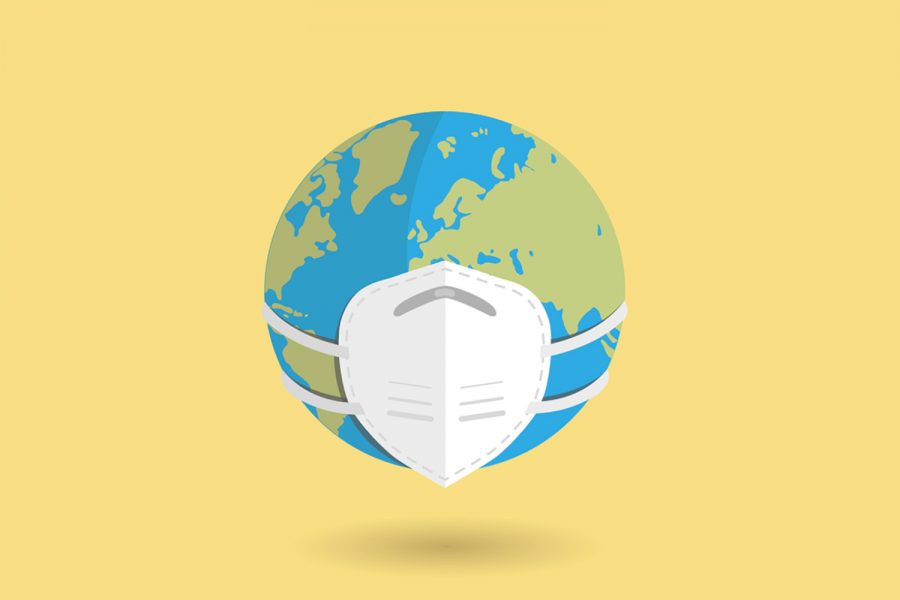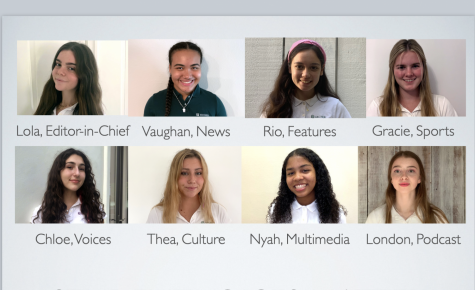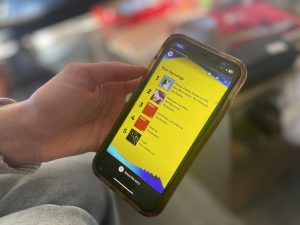Editorial: Generation Z, we’re disappointed in you
Photo credit: Cromaconceptovisual from Pixabay, licensed for reuse
According to The New York Times, there are currently 11.8 million COVID-19 cases and over 250,000 deaths reported in the United States alone. This virus is too dangerous to be ignoring the science; wear a mask and follow social distancing guidelines.
November 19, 2020
From stocking up on toilet paper and hand sanitizer to binge-watching “Tiger King” and doing Chloe Ting workout videos on YouTube, do you remember what quarantine was like in March?
In the beginning, COVID-19 was something that people actually took seriously. We feared leaving our homes and compromising the health of ourselves and our loved ones. However, we are now in a position nationally and globally where cases are drastically higher than ever before. According to this New York Times article, “at least 1,962 new coronavirus deaths and 187,428 new cases were reported in the United States on Nov. 19. Over the past week, there has been an average of 166,272 cases per day, an increase of 73 percent from the average two weeks earlier.”
This new spike in cases and deaths should prove more than ever before that this pandemic is something we must take seriously; however, we are doing the exact opposite. As a collective of Generation Z and young adults, we have become complacent, ignorant and worst of all, comfortable. Why is that?
According to the Pew Research Center, Gen Z are people born after 1996 and are considered to be “the best-educated generation yet.” Our generation includes stand-out scholars like Malala Yousafzai and Greta Thunberg. We were shocked, however, by the utter contradiction of how the so-called most educated generation could make the least educated decisions.
According to National Geographic, “when it comes to Millennials and Generation Z … stories of crowded beach gatherings and house parties where guests try to infect each other with COVID-19 have made headlines.”
Over the Halloween weekend in particular, cases surged exponentially due to parties that consequently became “super-spreaders” and prompted another spike in cases.
“Informal social gatherings, like Halloween parties, are ideal transmission sites for the virus because people let their guard down,” Kelley Vollmar said, health director for Jefferson County, Missouri, a suburb of St. Louis, in a statement urging residents to ensure a healthy holiday season. “[People] usually don’t social distance or wear a mask because they are with people they know and presume to be safe exposures.”
We were shocked to see so many of our peers and mutual teenage friends posting about going to both large indoor and outdoor parties as if COVID-19 suddenly disappeared, as if COVID-19 could no longer negatively affect or kill our loved ones. These young partygoers had absolutely no regard for their own safety, let alone their family’s. Unfortunately, everyone will have to suffer the consequences on their behalf.
According to Dr. John Brownstein, chief innovation officer at Boston Children’s Hospital and an ABC News contributor, we can expect around 200,000 cases a day by Thanksgiving, which is steadily approaching.
“If you then superimpose Thanksgiving indoor gatherings and travel, which is already a known driver of other respiratory diseases, we could see the pandemic hit new record case counts,” Brownstein said.” These new cases will likely contribute to health care system overload and a rapid rise in mortality.”
In addition to the Thanksgiving gatherings that are about to take place, the winter holiday season will be here shortly as well. With this in mind, there will only be more and more events that further spread COVID-19, whether that be shopping in the mall for gifts, or hanging out with friends at the ice skating rink.
These continued gatherings are now part of our reality because people continue to not take this pandemic seriously. This is now our reality because young people would rather party than to ensure the safety of their loved ones or others with underlying conditions. This is now our reality because it has become normalized to not quarantine or to follow social distancing guidelines.
Think back to how much more you were fearful and cared about this pandemic in March — when your priorities were set on protecting yourself from COVID-19, rather than spreading it. Where did we go wrong?
Reality check yourself: it’s now been nine months, and things have only taken a turn for the worse. We must continue to be optimistic but if we don’t start following the science and social guidelines as generation, time will run out to turn this all around. Gen Z, if you’re reading this, we are begging you to practice the social distancing guidelines in place and to wear a mask when around others. Don’t be selfish and continue to think about how your actions affects others.
Be empathetic. If you refuse to look after your own safety, at least do it for others.











Anna Brodsky • Nov 23, 2020 at 10:45 am
So proud of the important work you all are doing! Keep speaking out about issues that matter.